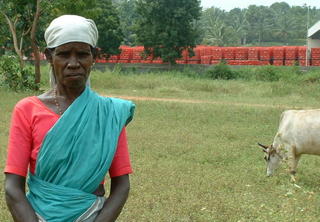
Wake up call on WBAI June 28, 2005
Toxic Coca-Cola WBAI, New York city
GUEST: Binu Alex, reporter for Free Speech Radio News
Click on the link 2005-06-28 Hour Two to listen
Jack of all master of none. Proud father but not attached to any Nun. Bad writer, Tech lover, safe driver in dry Republic of Gujarat. 2 decades in print, web, radio. Unglorified tweeter. No Admirers. Unlimited Foes, Endless envy

Wake up call on WBAI June 28, 2005
Toxic Coca-Cola WBAI, New York city
GUEST: Binu Alex, reporter for Free Speech Radio News
Click on the link 2005-06-28 Hour Two to listen







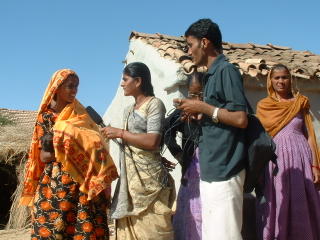


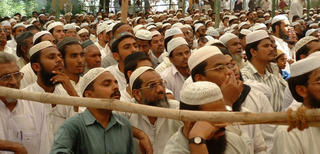
A woman subjected to sexual indignity by any of her husband's ascendants or descendants becomes haram or prohibited for him. This is the rule followed by Islam laws in India and this was a rule of worldly wisdom evolved by some religious jurists of Arabia over a 1,000 years ago.
This is nothing but creating de-facto refugees. While referring about refugees, I remember a fanatic from Gaza strip objected to the UN displaying a picture of a poor woman in a pitiable condition on their appeal to help. While I offer my sympathies to all those who live in pitiable conditions - some in their own country - as refugees, I wrote to him that I cannot but tell him that I believe his brethren Muslims still are those who create more refugees.
Take for example, Banda Aceh in World's largest Muslim country where thousands of muslims died. What did Saudi Arabia donate? Just the same amount as an individual Michael Schumacher donated? All the Muslims nations still demand a strong role by the UN, a body dominated by Christian countries and you have strong objection to using a picture of a lady in their appeal for help.
Swallowing a large amount of aid is no sin - but displaying a picture is. Which Muslim nation gives any dignity to women? I wrote to him plainly “You take a high degree of refuge in the fact that you are a refugee. There are different types of refugees. All refugees are not of the same type. You cannot absolve yourself by repeating that you are a refugee and whatever you do is legitimate.”
Interestingly his name was Sam. May be adopted name to hide identity. I asked him on who told him that religion is ultimate in this world? “Religion shows you light, but you are seeking a tunnel of light from it and naming it as your duty, right.”
Otherwise, this 28-year-old Muslim woman’s rape in the northern Indian state of Uttar Pradesh by her own father in law could not have turned into be a battle between women’s rights activists and protectors of Shariat law. A decision by the local Muslim council that she should now live with her rapist than her married husband is proving to be the thorn in the flesh. This has also brought in a fresh debate on uniform civil code and rights of women in Muslim society. Imrana is not alone in this sub continent. Just across the border a same set of rules ordered the rape of a woman, Mukthar bai. Though she is fighting the case, women like Imrana may resign to her fate.
To conclude
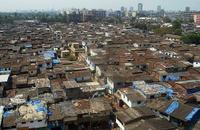
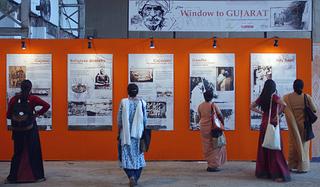

Like any visitor, the CISF personnel frisk Rupa Modi when she enters the office of Raiskhan Pathan, coordinator for Citizens for Peace and Justice. The office is situated in the Shahpur area of Ahmedabad, once a hub of Hindu-Muslim unity and now a Muslim ghetto, and the CISF is at the gate at the instructions of the Supreme Court after the Best Bakery verdict.Rupa is a Parsi and used to live in the infamous Gulbarg Society, now a ‘ghost area’. What happened to Gulbarg society on 28 February 2002, and afterwards is in history books. Since that day, she has not seen her 14-year old son Azhar Modi. “I have no idea about his whereabouts” she says, showing a pamphlet she has prepared for display in public places. The last two years’ experience has shattered her faith in the administration. “I know that it is not possible to find out one in a billion. But with administrative machinery at their disposal, they can at least give a try.’ Now she has turned to a NGO (non-government organisation) for help. When the government fails, NGOs emerge. This may not be entirely true, but it is apt to say that when government ignores, NGOs thrive. As human rights activist, Father Cedric Prakash, points out, NGOs cannot replace the government but can merely be a supportive element to help the government. And they rose to the occasion during the earthquake of 2001. People of Kutchch still show a great respect for the NGOs; an international award for rebuilding the area was, however, bagged by the state-run Gujarat State Disaster Management Authority. It would be more correct to say that the NGOs worked with the government to build new lives for those shattered by the quake. But the scene changed totally after the Gujarat massacres. The NGOs were forced to work in sectors where only the government could, and should, have provided assistance. And when not enough NGOs were coming out to help the victims because they feared persecution, some good souls made arrangements for food and shelter and relief camps were organised in various parts of Gujarat. Since the people sheltered in the camps were too afraid to go to their respective villages, new ghettos emerged. These ghettos gave more reasons for creating more projects for NGOs. Since the ghettos were newly created, they had no facilities and the children, as usual, did not go to school. Very few had sources of income, which had to be generated somehow. Health care was a major concern and it had to be addressed.A series of meetings and project proposals were prepared. The question many critics ask is ‘Who did they help?’ In the words of Gujarat law minister Ashok Bhatt, these ‘five star activists’ did help. But the beneficiaries, he says, were the Toyota and Mahindra & Mahindra companies as their sales increased. (The terminology ‘five star activists’ doesn’t stop with Bhatt. It was actually coined by Modi. He still claims to be the inventor of the phrase and uses in at any given opportunity.) “They have no business to tarnish the image of Gujarat. In the name of helping a few, they are putting Gujarat to shame,” said Ashok Bhatt. NGOs are of different classes. They are classified and put into categories like Hindu, Christian and Muslim. Among them there are different sub-classes like Dalit, tribals and women. And those with secular credentials are perceived to be pro-Congress while some are identified with right-wing ideologies. For instance, a Dalit NGO will petition the government if a Dalit woman is molested or a Dalit man is attacked. Those other than Dalit are a non-existent entity for them. But the same NGOs who accepted funds and international awards for Dalit upliftment, even equated the discrimination with apartheid and tried to represent the UN, kept mum when Dalits participated in rioting. Muslim NGOs work within their ghettos and community, and have no room for any other occupation. Since Christians are few and they rarely need NGO help, they work with all communities. If government survives from election to election, NGOs survive from disaster to disaster, project to project. Francois Gautier is a French journalist working in India. A sort of BJP ideologue, he criticised Sonia Gandhi for her inability to understand India. He himself, however, claims to understand India in his columns and blasts NGOs for their attitude. In one of his columns in the Indian Express, Gautier wrote: “He or she (NGO activists) usually comes from the upper elite, carries the latest laptop and often travels around in AC cars. He or she spends half his/her time abroad, in London, Paris or New York, doing mesmerizing slides and Excel spreadsheets, in front of gullible westerners, always ready to shed a tear for the poor ‘downtrodden Indians’, so as to convince them to grant more funds”. Outwardly, this may be true as it is no hidden fact that NGOs have the best of offices, best interiors, best vehicles available, best gadgets and very few senior personnel travel by train. But critical evaluations have to be balanced with ground level efforts. The best of activists in the world have no offices to decorate their interiors. Medha Patkar has no home she can call her own. Sundarlal Bahuguna or Baba Amte may not have even seen a mobile gadget. Mother Teresa lived in penury though she attracted millions in donations. Activism is a service but with a pinch of professionalism. Some may argue that activism is a profession now but with a pinch of service. If it had not become one, we would not have seen increasing numbers taking to activism and very few MSW graduates. All professions have their own glamour and attraction. Activism is one which brings money and fame along with the tag of a reformer. If the NGOs have not done anything, then who has done the work that is seen on the ground? Who made Best Bakery the icon of Gujarat violence to the extent that the Supreme Court passed strictures against the state government? Who provided rations and shelter to the hapless victims of the genocide? And who is with the victims when they are in need of counseling? “Certainly these people,” said Jaanbiwi Malik, pointing out to one of the social activists. Her son, Altaf Hussain, had flown in from Dubai, where he had been working for over six years, to get married. He arrived, got married, but within a week he was arrested and is in the Central jail in Ahmedabad to date, under POTA. His crime is conspiracy in the Akshardham attack. Jaanbiwi says neither she nor her son has ever seen this temple. When all hopes capsized, they turned to one of the NGOs who, at least, gives her some hope that one day her son will return. People like Gautier measure India’s empowerment of women by citing the example of Indira Gandhi, and citing Dr Manmohan Singh and Abdul Kalam as the measure of India’s pluralism. He refuses to believe that there is a high rate of female infanticide, saying that girls are loved in India like nowhere in the world. For a better analysis of the booming NGO business, one need not go beyond their respective Income Tax offices and ask the reception for Assistant Director of Income-Tax (Exemptions). Thousands of applications arrive everyday to allow them to accept funds with income-tax exemptions. Whether they do the work as mentioned in their preamble is anybody’s guess. As in any business or service, NGOs are attracted to those fields where there is easy money. AIDS is one of the money-spinners in India. No NGO is willing to invest time and energy required to convince a funding agency about the need to plant trees in Ahmedabad because the SPM is dangerously high. No NGO is eager to carry out a campaign to build footpaths in a city for those who would like to walk to their respective destinations? The answer lies in civil society itself. An immature civil society cannot have a mature human being. If NGOs thrive in the name of the poor, it is the failure of the civil society. Narendra Modi and company refused to identify relief camps in Gujarat, leave alone set up one. Moreover, the government severely punished all those who helped the victims. Should these ‘modern day Neros’ have any right to criticise the NGOs who, at least, came to the victims’ rescue. So let the NGOs thrive because you and I can only criticise the activists, but cannot help even a single soul
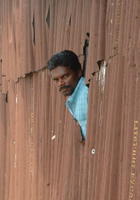

 and alternate income.
and alternate income.


